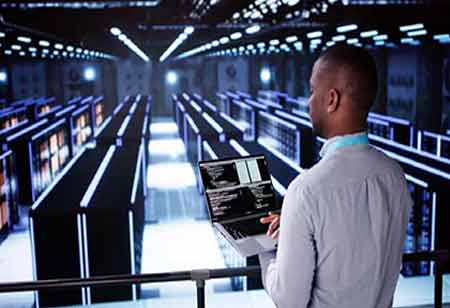THANK YOU FOR SUBSCRIBING

The Human Factor in the Digital Transformation of the Construction Industry
Frédéric Leclair, Senior Director, Drafting Services, Cana

 Frédéric Leclair, Senior Director, Drafting Services, Cana
Frédéric Leclair, Senior Director, Drafting Services, CanaThe industrial revolutions of the past have significantly shaped the world we live in today. From mechanization to mass production and electrification, followed by electronics, computers, and automation, each revolution brought about transformative changes in economies, societies, and workplaces. Now, as we find ourselves amidst the fourth industrial revolution, characterized by rapid technological advancements and digital transformation, it is poised to redefine the future in profound ways.
In the construction industry, digital processes and innovative technologies are becoming increasingly prevalent. Building information modeling (BIM), augmented reality (AR), virtual reality (VR), robotics, artificial intelligence (AI), internet of things (IoT), and drones are just a few examples of the technologies that are revolutionizing the construction landscape. Yet, amid this surge of technological progress, it is important to recognize that the ultimate key to success in this digital revolution lies in the hands of the people and their willingness to adapt, share, and collaborate.
The power of people
People-driven companies that actively embrace and explore new technologies are poised to emerge as leaders in this new industrial era. These organizations recognize that the true potential of the technological revolution can only be unlocked through a holistic approach that integrates technology with the human element.
Here are a few thoughts on how we can make people fully contribute to the successful digital transformation of our construction industry:
1. Organizational culture & Lean principles - People-oriented companies usually foster a culture that values innovation and continuous improvement. Embracing change becomes a natural part of their ethos, and team members are encouraged to think creatively, explore new solutions, and adapt to evolving technologies. This cultural mindset facilitates the seamless adoption and integration of technology.
2. Customer-centric approach - Companies committed to meeting client needs and expectations cultivate a team mindset that extends to the integration of technology into client interactions and project delivery. This customer-centric approach positions them favorably to leverage technology for enhanced client communication, real-time updates, transparent project tracking, and personalized services.
3. Collaborative environment - When individuals from diverse teams, departments, or disciplines within an organization are proactively engaged in regular discussions, workshops, and knowledge-sharing sessions, they are also more inclined to demonstrate effective collaboration and facilitation skills with clients, partners, and project stakeholders. In the construction industry, there is an increasing prevalence of BIM collaborative platforms rich in real-time data, crucial for informed decision-making by project stakeholders and it is important to acknowledge the dedicated individuals driving these initiatives for the collective benefit.
"Amid this surge of technological progress, it is important to recognize that the ultimate key to success in this digital revolution lies in the hands of the people and their willingness to adapt, share, and collaborate”
4. Empowerment - Granting team members the autonomy to make decisions and take ownership extends the benefit to the technology adoption as it empowers them to explore and adapt tools to specific needs. Such autonomy fosters agility and responsiveness in technology implementation.
5. Talent retention - A positive work environment that values and supports its people contributes to higher retention rates which are helping the knowledge and expertise retention necessary for a successful digital transformation. Experienced people who have a deep understanding of the industry's nuances play a critical role in driving the effective adoption of technology. By retaining this valuable talent, companies ensure continuity in knowledge transfer and the sustained success of digital initiatives.
6. Team problem solving - Encouraging a culture of open sharing of insights, experiences, and solutions related to technology adoption accelerates the resolution of challenges. In this collective problem-solving environment, a culture of continuous learning and improvement thrives.
In conclusion, while technology is readily available, it is the people who ultimately determine how effectively and strategically it is leveraged. Construction companies that believe and invest in people possess a unique advantage in the digital transformation journey due to their focus on culture, empowerment, adaptability, and customer-centricity. These factors collectively empower team members not only to embrace digital transformation but also to leverage it strategically, setting new standards of excellence in the construction industry as they thrive in the digital age.
Read Also
Where Safety Really Lives: Between the Plan and the Jobsite
Accelerating the Shift Toward Data-Led Construction Excellence
Building Projects Through People, Planning and Culture
Innovating the Future of Construction: Insights From Power Design's Leadership
Advancing Construction with Technology and Care
Technology as a Strategic Advantage in Preconstruction

 Copyright © 2026 All Rights Reserved | by:
Copyright © 2026 All Rights Reserved | by: Construction Tech Review
| Subscribe | About us | Sitemap| Editorial Policy| Feedback Policy














